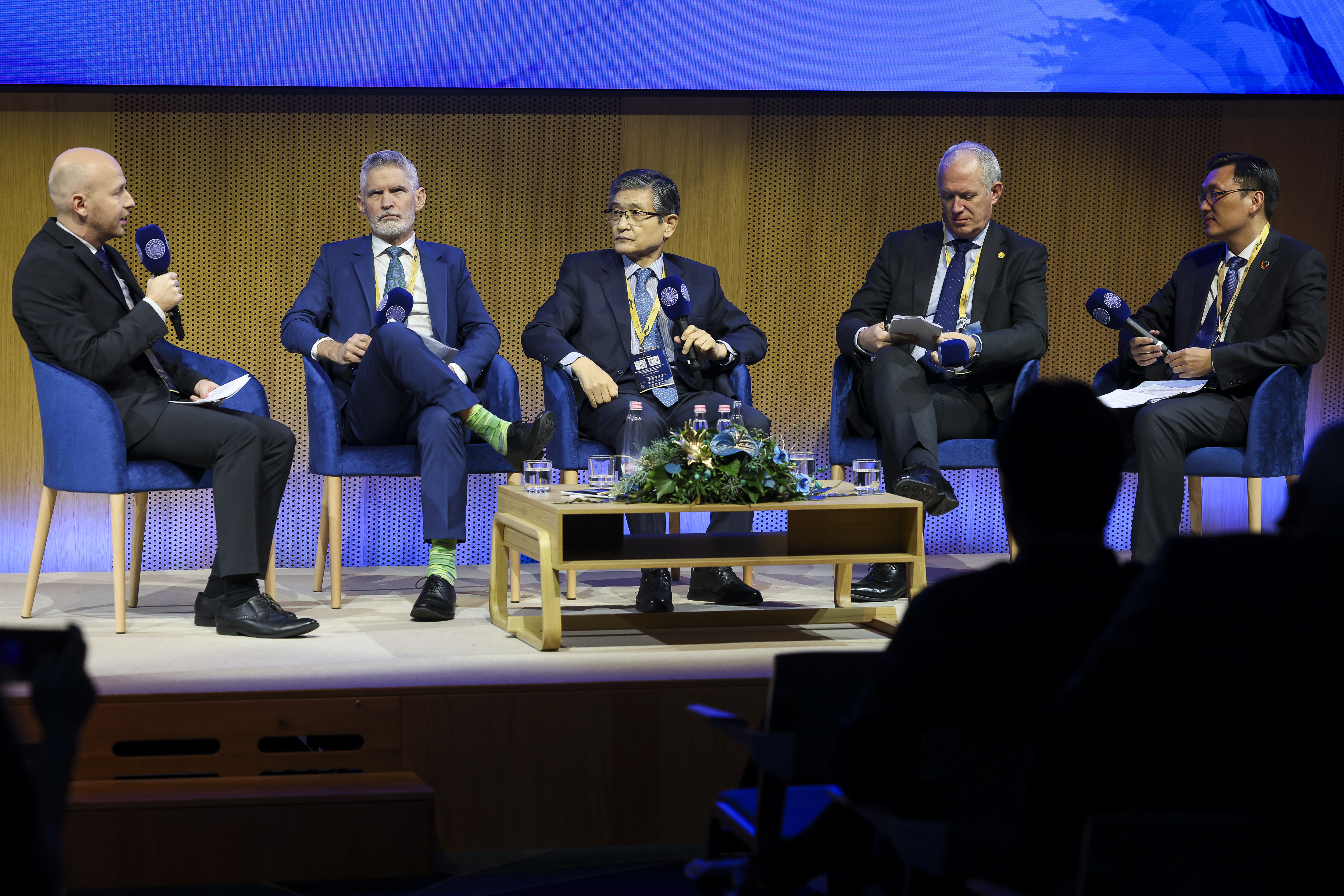
Ma Jun, President of the Beijing Institute of Finance and Sustainability, was awarded this year's MNB International Green Finance Lifetime Achievement Scientific Award. Ma Jun is a world-renowned policy advocate for green and sustainable finance, has published numerous papers on monetary policy, financial markets and sustainable finance, and has advised policymakers, financial institutions and investors on a wide range of financial issues over the past 15 years.
In the fireside chat, Ma Jun spoke about how China is close to meeting its 2030 targets, but also saw an emerging green technology race in the world. "China has dominated the production of technologies such as solar panels, batteries, but there are many new technologies such as heat pumps, hydrogen electrolysers," he explained.

The next panel discussion was moderated by Gábor Gyura, Sustainable finance consultant at the United Nations Environment Programme Finance Initiative (UNEPFI). The main topic of the discussion was the concept of corporate social and environmental responsibility (ESG). "The success of ESG depends on how much consumers value a company's ESG rating. If consumers' perception is not very strong, the appetite of the company for such investments will not be very strong," said Raekwon Chung, Board Director of the Ban Ki-moon Foundation for a Better Future.
Zhu Xufeng, Professor and Dean of the School of Public Policy and Management (SPPM) and Executive Director of the Institute for Sustainable Development Goals at Tsinghua University (TUSDG), said that policies should not be too diversified because companies have different preferences. Benjamin Cashore, Professor and Director of the Institute of Environment and Sustainability at the Lee Kuan Yew School of Public Policy of the National University of Singapore pointed out that while the world is trying to respond to various problems with ESG, they are getting worse. Andrew Cross, CFO of the Asian Infrastructure Investment Bank, pointed out that banks have a key role to play in mitigating climate change.
The author is a foreign policy journalist.